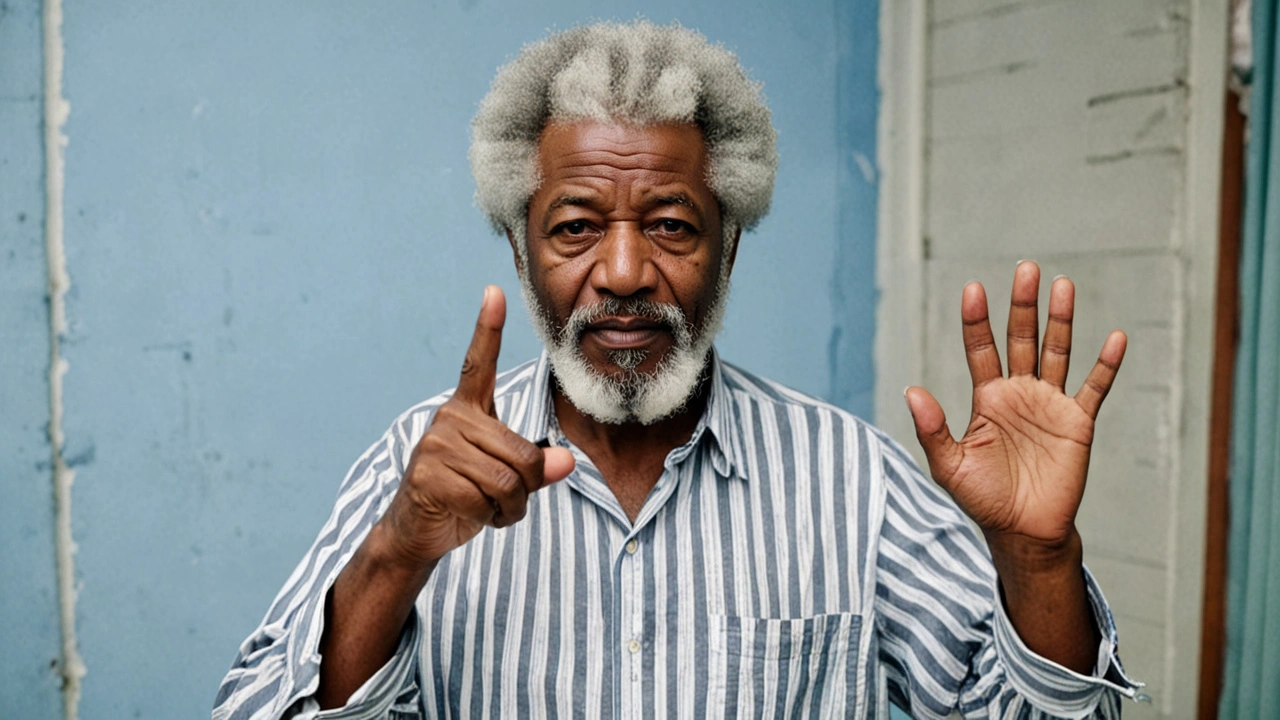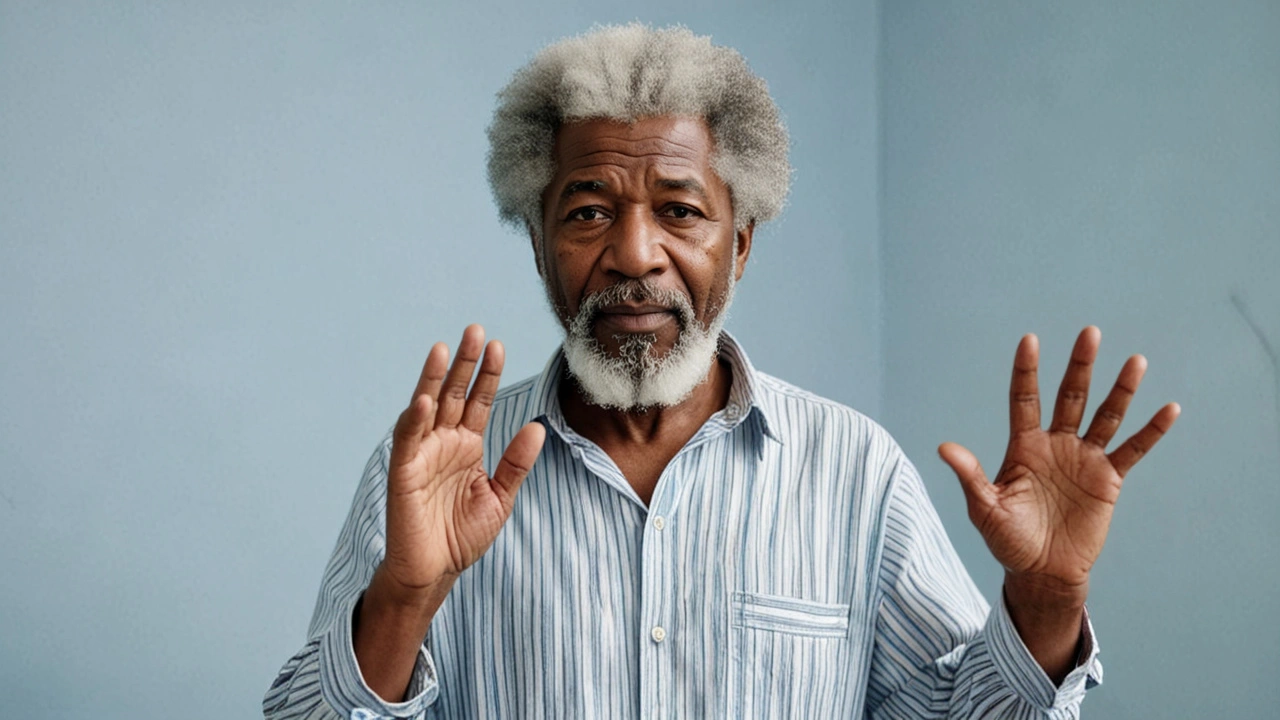The Legacy of Wole Soyinka: Celebrating an Icon
President Bola Tinubu has paid tribute to one of Nigeria's most illustrious sons, Wole Soyinka, by renaming the National Theatre in Iganmu, Lagos. The renamed theatre, now called The Wole Soyinka Centre for Culture and the Creative Arts, marks the 90th birthday of the Nobel laureate. This monumental change not only honors Soyinka’s extensive contributions to literature and culture but also acknowledges his relentless fight for justice and good governance.
Born on July 13, 1934, Soyinka has carved a monumental niche for himself in the annals of global literature and activism. His vast repertoire includes plays, novels, poetry, essays, and even musical compositions, showcasing his multifaceted talents. He is as celebrated for his literary prowess as he is for his activism, making him a towering figure globally. In 1986, he became the first African to be awarded the Nobel Prize in Literature, an achievement that underscored the global significance of his works.

Soyinka's Impact on Literature and Culture
Wole Soyinka's literary journey has been nothing short of phenomenal. His works, which often explore themes of oppression, tyranny, and human rights, have resonated with readers across the globe. Plays like 'Death and the King's Horseman,' 'A Dance of the Forests,' and 'The Lion and the Jewel' are studied in schools and universities worldwide, helping to shape the minds of new generations.
He is also a revered poet, essayist, and novelist. His novel, 'The Man Died: Prison Notes of Wole Soyinka,' is a powerful testimony to his personal experiences during the Nigerian Civil War, when he was imprisoned for his outspoken views against the government's actions. Soyinka’s works are infused with elements of Yoruba culture and traditions, providing a rich tapestry of African heritage that captivates and educates audiences.
A Courageous Voice Against Injustice
Soyinka has never shied away from speaking truth to power. Throughout his life, he has been a steadfast advocate for democracy, good governance, and human rights. He has faced numerous threats and has even been imprisoned for his stand against corruption and oppression. His unyielding courage in the face of adversity has made him a beacon of hope and an inspiration to countless individuals worldwide.
President Tinubu, in his speech, described Soyinka as a true repository of history, knowledge, and courage. He highlighted Soyinka’s relentless efforts, both nationally and internationally, to combat corruption and maladministration. The president commended Soyinka’s role as a pro-democracy champion, emphasizing that his influence extends far beyond his literary achievements. He is a symbol of resistance against tyranny and a testament to the power of the written word in fostering change.

A Monumental Renaming: The Wole Soyinka Centre for Culture and the Creative Arts
The renaming of the National Theatre is a significant gesture that encapsulates Soyinka’s immense contributions to the world of culture and the arts. Located in Lagos, the National Theatre has been a hub for creative arts in Nigeria since its inception. It has hosted numerous cultural events, from plays and concerts to exhibitions and festivals, and has played a pivotal role in nurturing Nigeria’s rich cultural heritage.
By renaming this iconic institution after Wole Soyinka, the government not only celebrates his 90th birthday but also ensures that his legacy will continue to inspire future generations. It signifies a commitment to preserving Nigeria’s cultural history while looking forward to a future enriched by the arts. The Wole Soyinka Centre for Culture and the Creative Arts will serve as a beacon of creativity, excellence, and moral fortitude.
This renaming is expected to invigorate the cultural scene in Nigeria, attracting both local and international artists, scholars, and enthusiasts. It is a fitting tribute to a man whose life and work have had a profound impact on the global arts community. The Centre will also provide a platform for emerging talents, offering them the opportunity to showcase their work and carry forward Soyinka’s legacy of excellence and innovation.

Influence on Future Generations
Wole Soyinka’s impact extends beyond his immediate contributions to literature and activism. He has inspired a new generation of writers, scholars, and activists who seek to follow in his footsteps. His works continue to be a source of guidance and inspiration, encouraging young minds to challenge injustice and strive for a better, more equitable world.
Educational institutions around the world include Soyinka’s works in their curricula, ensuring that his ideas and principles are passed down to future generations. His writings provoke critical thinking and spark important conversations about society, governance, and human rights. In a rapidly changing world, the lessons gleaned from Soyinka’s life and works are more relevant than ever.
Conclusion: Honouring a National Treasure
The renaming of the National Theatre to The Wole Soyinka Centre for Culture and the Creative Arts is a fitting tribute to Nigeria’s most celebrated literary icon. President Bola Tinubu’s decision recognizes the indelible impact that Soyinka has had on the cultural and political landscape of Nigeria and beyond. As the Centre begins its journey under its new name, it stands as a testament to Soyinka’s enduring legacy and his unwavering commitment to justice, creativity, and human enlightenment.
Wole Soyinka’s influence transcends the boundaries of literature and activism. He is a guiding light, an unyielding advocate for justice, and a paragon of intellectual and cultural excellence. The newly named Wole Soyinka Centre for Culture and the Creative Arts will continue to inspire and nurture the creative spirits of future generations, ensuring that Soyinka’s legacy lives on. As Nigeria and the world celebrate his 90th birthday, we are reminded of the power of one individual to ignite change and leave an everlasting mark on society.






Write a comment